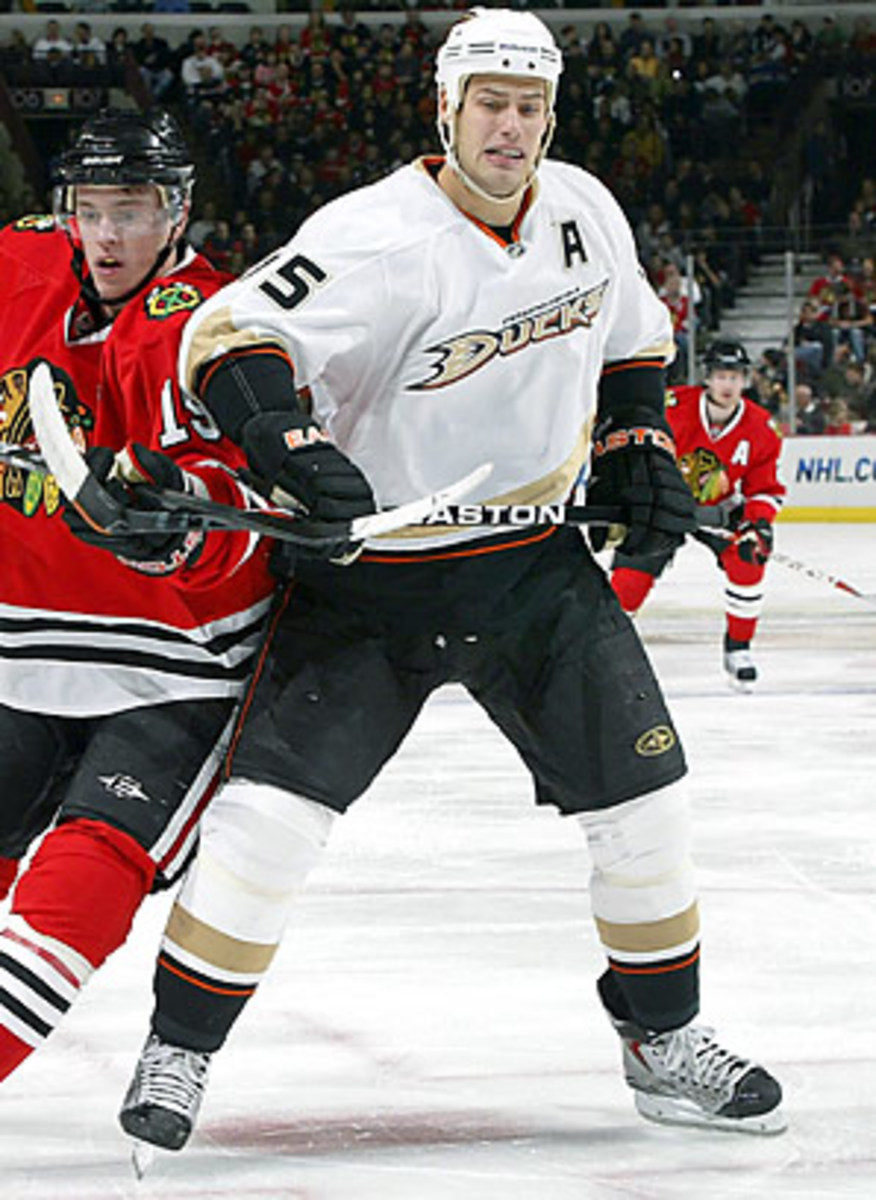Getzlaf's status a big concern for Team Canada
On a day when some Canadians were debating the jazzification of their national anthem at the Opening Ceremonies and a band of one-size-fits-all protesters were mussing the pretty face Vancouver was hoping to show to the world, the truly connective threads that united the Olympic host country were the ligaments around the left ankle of Ryan Getzlaf.
The rangy Anaheim Ducks center skated on Saturday and was scheduled to test his ankle again on Sunday. With 23-man Olympic rosters set to be finalized on Monday, Team Canada would soon need to decide whether to stick with the presumptive second-line center behind Sidney Crosby or dump Getzlaf for Philadelphia's Jeff Carter, a right-handed shooting center/winger.
Steve Yzerman, executive director of the team with the most pressure in the history of any sport that did not directly involve Christians and lions, said Team Canada's doctors have been in regular contact with the Anaheim medical staff; a decision will come only after Getzlaf tries it one more time.
The issue is hardly a trivial one in Canada given the results in four years ago in Turin, when the Canadians were shut out three times -- including once by Switzerland -- and finished a teeth-gnashing/garment-rending seventh. At orientation camp last August, assistant coach Ken Hitchcock spoke at great length of how Team Canada was done in at Turin because so many of its players arrived in Italy too banged up to be effective in the high-tempo tournament.
This speaks, of course, to the hockey ethos. Unlike athletes in other sports (see Vonn, Lindsey), hockey players don't broadcast their injuries. (And if they did, they certainly wouldn't ask Matt Lauer to do the interviewing.) As Edmonton Oilers general manager Kevin Lowe, part of Yzerman's management team, said, "NHL players are used to playing injured in the Stanley Cup playoffs. The potential replacement" -- say, a seventh defenseman or a 13th forward -- "is probably not a worthy replacement." Yzerman has addressed the issue with all the players whom he named on Dec. 30. The message: If you are not close to 100 percent, do yourself and your country a favor by making sure we know. Lowe, part of executive director Wayne Gretzky's Team Canada staff in 2002 and 2006, told SI.com, "We did have some banged up guys in Turin. I don't want to think we dropped the ball, but you want to make sure you get it right. [Defenseman] Chris Pronger, and I'm just using his name, at 70 percent is better than pretty much anybody else [an NHL] team could send out there in the playoffs. But [in the Olympics] Chris Pronger at 70 percent is not as good as Jay Bouwmeester at 100."
If Yzerman applied his own rules to himself in 2002, he would not have been part of the team that won the gold medal and ended Canada's 50-year Olympic championship drought. Yzerman could barely walk at the time. He was in bone-on-bone pain. After his second Olympic tournament and the 2002 Stanley Cup victory a few months later, he had an osteotomy, an operation that generally is performed on the elderly to forestall a knee replacement, that would force him to miss 66 games the following season. Yzerman had two goals and six points in the 2002 Olympics, a force on the ice and an inspiration off it. Like Mario Lemieux, who was plagued by hip problems and preserved himself by skipping some Pittsburgh Penguins games to play for his country in '02, Yzerman was just as magnificently stubborn as Getzlaf surely will be.
Maybe it isn't right. But it is hockey.






